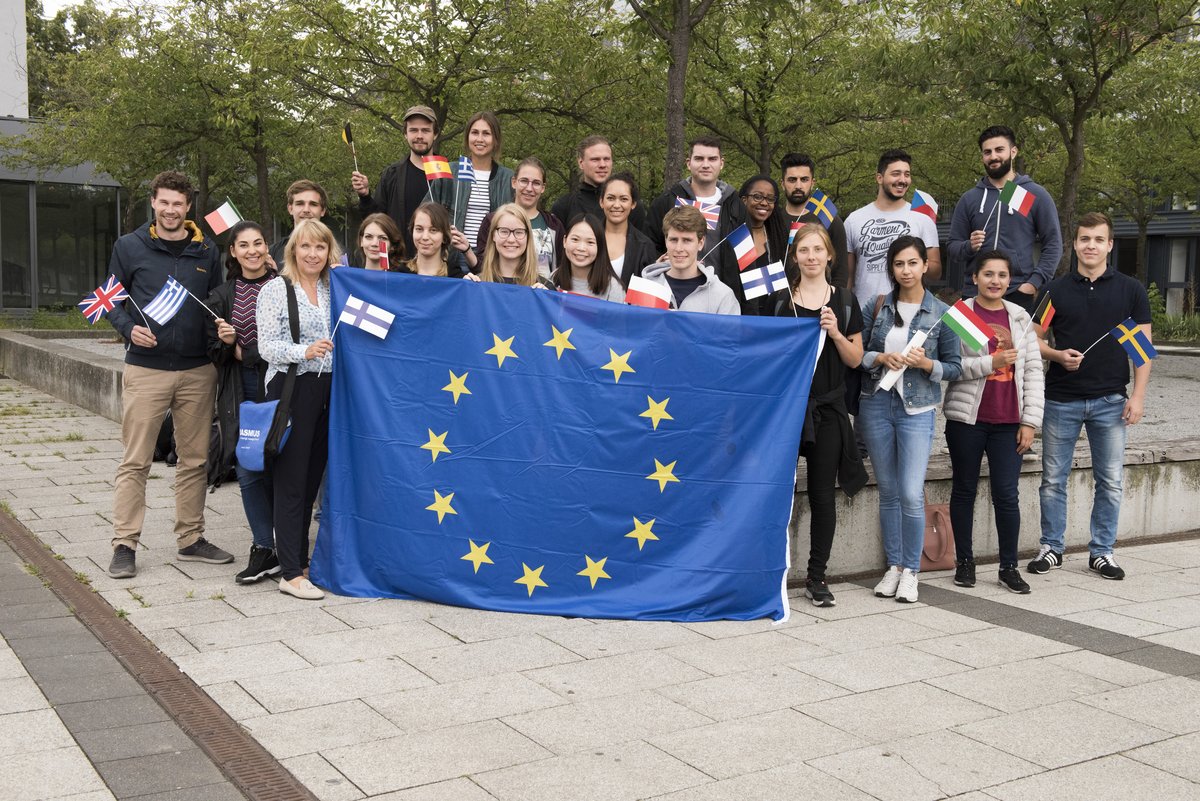ERASMUS+ supports the internationalization of studies and teaching at the BTU
Mobility in studies and professional life regularly contributes to the development of professional, social and intercultural skills. Participation in the ERASMUS+ program has immediate effects for the participants. Students gain an insight into the European project - it brings together a new student generation, promoting common values and a European identity. The focus is on broadening their professional knowledge, adding an international component to their studies, and improving their language skills.
This strengthens their professional skills and enables them to later work competently in an international context. For doctoral students, the added value also comes from cooperative research work, supervision by proven, experienced scientists at the universities, and access to extensive technical equipment - conditions that cannot be created by singular research work.
Teachers are familiarized with the teaching methods of the partner country and gain a deeper insight into other research cultures. Components can be adopted in their own teaching and research concepts. Moreover, the international network, which is important for scientists, is further expanded, which significantly increases the possibilities for transnational research proposals and future collaborations.
The implementation of the mobility projects offers strategic added value for the BTU, as they make an important contribution to achieving key internationalization goals in profile-forming focus areas. Through the scientific exchange, existing links between the research groups can be intensified and, if necessary, further links can be established. The planned knowledge transfer increases the expertise in the areas involved and the research output on all sides. The additional research know-how of the partner institutions complements the competencies and focus areas of the BTU excellently and enables a more comprehensive research depth and breadth. Participation in the ERASMUS+ program thus has a significant impact on both the institutional development of the BTU and the individual development of the participants. Both are cornerstones of the internationalization and modernization of education and a major tool for the further development of the global higher education area.
With the BTU's participation in the EUNICE higher education network and the associated promotion of the emergence of a strategic partnership network on 'European higher education', the BTU is pushing a joint, integrated and long-term strategy in a knowledge triangle of education, research and innovation. 'European Universities' are higher education alliances that aim to combine the strengths and diversity of European research and teaching in new structures to meet the challenges facing Europe.
Even though the COVID-19-pandemic has severely affected the real-life mobilities of students and staff worldwide, the BTU and its partner institutions manage to successfully continue and bridge collaborations using digital components (including video conferencing, online modules, online meetings, online conferences). Depending on further developments, these innovative cooperation and mobility models may continue in the near future and develop into a valuable addition to the physical ERASMUS+ mobilities.
The EU's Erasmus+ program has been a successful model for 35 years: since its launch on June 15, 1987, around one million German students have gone abroad in Europe with Erasmus. In total, more than twelve million Europeans have taken part in Erasmus. There are 350 German universities participating in the program.
The program is considered to be of great importance in terms of education policy, both internationally and nationally. The EU mobility projects as one of the three pillars of the ERASMUS+ program promote diverse mobilities for teaching and learning purposes as well as transnational cooperation in the education sector. Especially in difficult times like these, when the worldwide Covid-19 pandemic is making scientific exchange between universities noticeably more difficult, it is all the more valuable for the BTU and its partner institutions to be able to continue to operate within the framework of ERASMUS+.
Contact
Stabsstelle International Relations Office
T +49 (0) 355 69-2338
michael.mannel(at)b-tu.de
Stabsstelle Kommunikation und Marketing
T +49 (0) 355 69-3126
susett.tanneberger(at)b-tu.de

